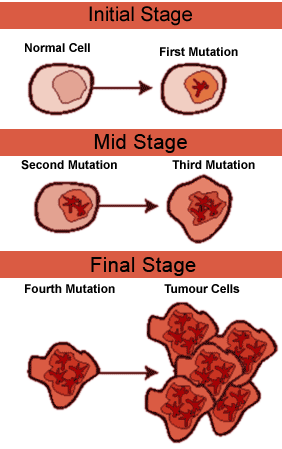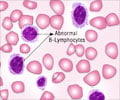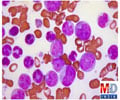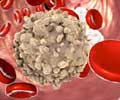General Info about Leukemia
Leukemia - which literally means "white blood" in Greek - occurs when there is an excess of abnormal white blood cells in the blood. This is a cancer of the blood cells. This is a term to refer to a group cancerous disorders of blood forming tissues.
It is a type of blood cancer that affects the lymphatic system and bone marrow, two structures that create blood. Acute lymphocytic leukemia (ALL), acute myelogenous leukemia (AML), chronic lymphocytic leukemia (CLL), and chronic myelogenous leukemia (CML) are some of the manifestations. Leukemia is characterized by an excessive and dysfunctional generation of white blood cells.
Normally blood is made up of fluid and different type of cells called red cells (they carry oxygen and carbon-dioxide), white cells (they fight infection) and platelets (these help in clotting of blood or stopping bleeding on cut wounds). The blood is made in the bone marrow, which is located inside the bones.

Cancer is a group of more than 100 diseases that have two important things in common. One is that certain cells in the body become abnormal. Another is that the body keeps producing large numbers of these abnormal cells.
Leukemia's are either acute or chronic, and are classified by the type of abnormal white blood cell present. Acute cases generally develop more rapidly than chronic cases. If acute leukemia goes untreated it can be fatal within a few weeks or months. However with treatment, life can be prolonged and in some instances a complete cure may be provided. Approximately 6-7 new cases of acute leukemia are diagnosed per 100,000 people in a year.



















